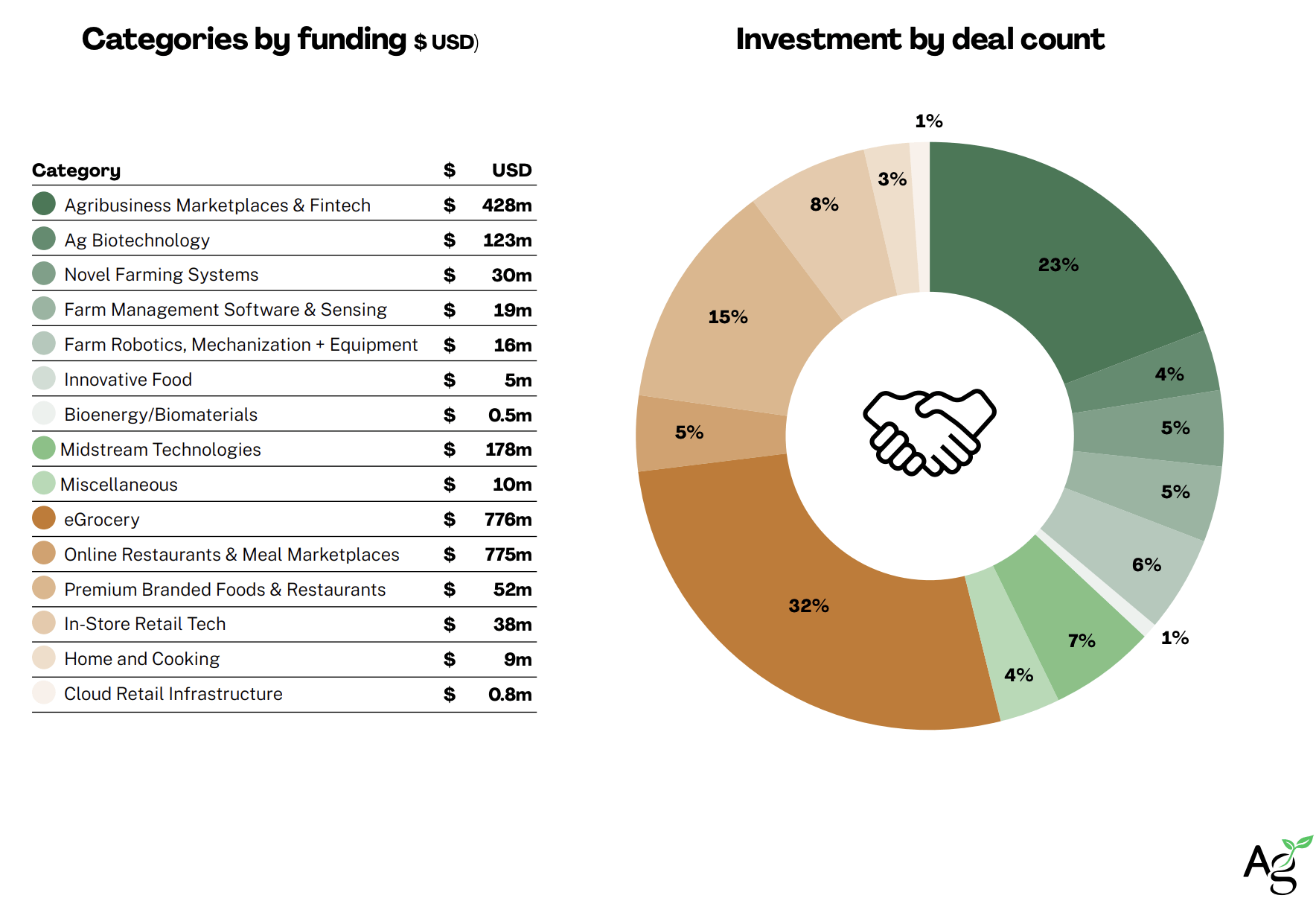Data Snapshot is a regular AFN feature in which we analyze agrifoodtech market investment data provided by our parent company, AgFunder.
Click here for more research from AgFunder and sign up to our newsletters to receive alerts about new research reports.
Since the start of 2022, Novel Farming startups have raised $30 million, accounting for about 5% of agrifoodtech investment in India, according to AgFunder’s India AgriFoodTech Investment Report 2023 created in partnership with VC firm Omnivore.
It’s a small but important figure in the country’s overall agrifoodtech investment landscape. India, after all, is tasked with sustaining nearly 18% of the world’s population while simultaneously bearing some of the heaviest impacts of climate change. Erratic flooding and drought in the country impact traditional agriculture and has forced some to rethink how India will grow some of its food in the future. More than 80% of Indians live in climate-vulnerable districts, according to AgFunder’s report.
The AgFunder-defined Novel Farming category includes indoor farms, aquaculture, and insect and algae production. All of these areas present opportunities for India to bolster its food supply, and will be important technologies for the foreseeable future.

Top Novel Farming deals since 2022
EekiFoods, which has developed IoT-based indoor farms for vegetable production, raised a $6.5 million Series A led by General Catalyst in 2022. The company says its farms “provide 300% more yield on any land barren or unused at 50% of the growing cost, using 80% less water.”
Hydroponic farming company Nutrifresh raised $5 million in pre-Series A funding from a pack of global investors including Theodore Cleary of Archer Investments and Pure Harvest co-founder Sky Kurtz.
Another notable round for this timeframe came from Loopworm, which produces high-value insect meal for animal feed from food waste. The company raised a $3.4 million in seed round in 2022 co-led by Indian agrifood VC Omnivore and WaterBridge Ventures.
Small rounds also went to Pepper Farms for its “smart” farming operation, indoor ag startup Woolly Farms, and soil-less hydroponic farming company BluKhet.




